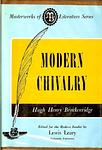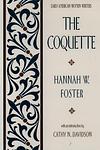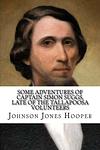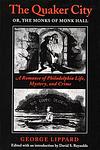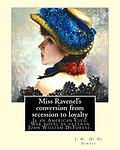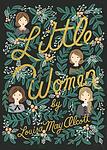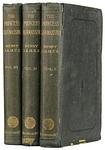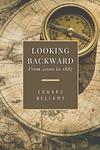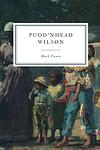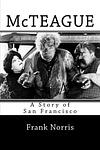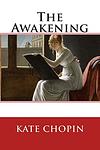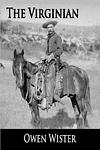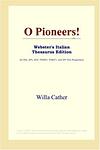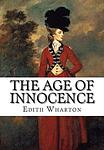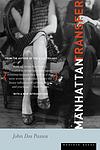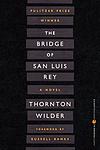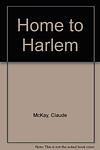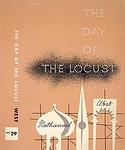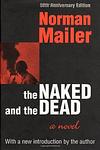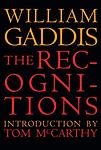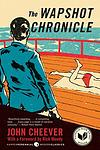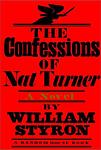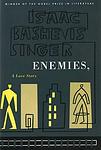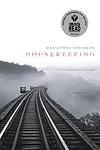One Hundred Best American Novels, 1770 to 1985
This is one of the 305 lists we use to generate our main The Greatest Books list.
-
The Scarlet Letter by Nathaniel Hawthorne
Set in 17th-century Puritan Boston, this novel tells the story of a woman who conceives a daughter through an affair and struggles to create a new life of repentance and dignity. She is forced to wear a scarlet "A" on her dress as a sign of her adultery while her lover, a revered local minister, remains unnamed and unpunished. Throughout the book, themes of sin, legalism, and guilt are explored.
The 58th Greatest Book of All Time -
Moby Dick by Herman Melville
The novel is a detailed narrative of a vengeful sea captain's obsessive quest to hunt down a giant white sperm whale that bit off his leg. The captain's relentless pursuit, despite the warnings and concerns of his crew, leads them on a dangerous journey across the seas. The story is a complex exploration of good and evil, obsession, and the nature of reality, filled with rich descriptions of whaling and the sea.
The 9th Greatest Book of All Time -
Adventures of Huckleberry Finn by Mark Twain
The novel follows the journey of a young boy named Huckleberry Finn and a runaway slave named Jim as they travel down the Mississippi River on a raft. Set in the American South before the Civil War, the story explores themes of friendship, freedom, and the hypocrisy of society. Through various adventures and encounters with a host of colorful characters, Huck grapples with his personal values, often clashing with the societal norms of the time.
The 24th Greatest Book of All Time -
The Red Badge of Courage by Stephen Crane
"The Red Badge of Courage" is a novel set during the American Civil War, focusing on a young private in the Union Army who flees from the field of battle. Overcome with shame, he longs for a wound, a "red badge of courage," to counteract his cowardice. When his regiment once again faces the enemy, he acts as the standard-bearer, proving his courage. The book explores the themes of heroism, manhood, and the illusion versus reality of war.
The 318th Greatest Book of All Time -
The Ambassadors by Henry James
The novel centers around a middle-aged man named Lambert Strether who is sent from New England to Paris by a wealthy widow, Mrs. Newsome, to convince her wayward son, Chad, to return home. However, upon arriving in Europe, Strether is charmed by the sophisticated lifestyle Chad has adopted and finds himself questioning the puritanical values of his homeland. He also becomes entangled in romantic relationships and complex social dynamics, leading him to ultimately question his loyalty to Mrs. Newsome. The book explores themes of morality, identity, and the concept of the American versus European lifestyle.
The 208th Greatest Book of All Time -
The Great Gatsby by F. Scott Fitzgerald
Set in the summer of 1922, the novel follows the life of a young and mysterious millionaire, his extravagant lifestyle in Long Island, and his obsessive love for a beautiful former debutante. As the story unfolds, the millionaire's dark secrets and the corrupt reality of the American dream during the Jazz Age are revealed. The narrative is a critique of the hedonistic excess and moral decay of the era, ultimately leading to tragic consequences.
The 2nd Greatest Book of All Time -
Absalom, Absalom! by William Faulkner
This novel is a complex narrative about Thomas Sutpen, a poor white man who rises to power in the South, aiming to create a dynasty that would rival the old aristocratic families. However, his ambitions are thwarted by his own flawed decisions and the overarching racial and societal tensions of the era. The story is not told in a linear fashion but rather through a series of interconnected flashbacks and narratives, offering different perspectives on the same events. The book explores themes of family, class, race, and the destructive power of obsession.
The 56th Greatest Book of All Time -
The Heart Is A Lonely Hunter by Carson McCullers
The novel explores the spiritual isolation of misfits and outcasts in a small town of the U.S. South. Its protagonist is a deaf-mute who becomes the confidant for various troubled souls including a black physician, a bitter labor activist, a lonely young girl, and a struggling café owner. Each pours their heart out to him, but he remains unable to respond, reflecting the deep human need for connection and understanding.
The 128th Greatest Book of All Time -
Invisible Man by Ralph Ellison
The novel is a poignant exploration of a young African-American man's journey through life, where he grapples with issues of race, identity, and individuality in mid-20th-century America. The protagonist, who remains unnamed throughout the story, considers himself socially invisible due to his race. The narrative follows his experiences from the South to the North, from being a student to a worker, and his involvement in the Brotherhood, a political organization. The book is a profound critique of societal norms and racial prejudice, highlighting the protagonist's struggle to assert his identity in a world that refuses to see him.
The 28th Greatest Book of All Time -
Blood Meridian by Cormac McCarthy
Set in the mid-19th century, this novel follows a violent teenager known as "the Kid" as he joins a group of Indian-hunters led by the enigmatic and brutal Judge Holden. The narrative is a gruesome depiction of the lawless American West, filled with philosophical musings, vivid descriptions of the harsh landscape, and brutal, relentless violence. The story explores themes of human nature, morality, and the inherent chaos and brutality of life.
The 172nd Greatest Book of All Time -
Modern Chivalry by Hugh Henry Brackenridge
"Modern Chivalry" is a satirical novel that follows the adventures of Captain Farrago and his servant, Teague O'Regan, as they travel through early post-revolutionary America. The narrative, which is both humorous and critical, explores the challenges and contradictions of the new democracy. Through the interactions between the idealistic, yet sometimes misguided Farrago, and the shrewd, earthy Teague, the novel examines the social and political landscape of the time, poking fun at pretension and highlighting the complexities of human nature and governance. The work is considered an important precursor to the American literary tradition, blending elements of picaresque narrative with keen social commentary.
The 8726th Greatest Book of All Time -
The Coquette by Hannah Webster Foster
The novel follows the story of a young woman named Eliza Wharton, who, after the death of her fiancé, enjoys her newfound independence and engages in flirtations with multiple suitors. Despite societal pressures to marry and settle down, Eliza is drawn to the charm of a man known for his libertine ways, leading her down a path of emotional turmoil and social scandal. The narrative, presented through a series of letters, explores themes of female autonomy, morality, and the consequences of defying the rigid social norms of late 18th-century America, ultimately culminating in a tragic cautionary tale about the dangers of unrestrained individualism and the societal expectations placed upon women.
The 2636th Greatest Book of All Time -
Wieland by Charles Brockden Brown
This novel unfolds in the pre-Revolutionary American countryside, centering around the Wieland family, who become embroiled in a harrowing tale of religious fanaticism, mysterious voices, and a series of inexplicable events that lead to tragedy and horror. The story is narrated by Clara Wieland, who witnesses the devastating impact of these supernatural occurrences on her brother, Theodore Wieland, whose descent into madness culminates in a shocking act of violence. The novel explores themes of faith, reason, and the dark recesses of the human mind, making it a pioneering work in the American Gothic genre and a profound inquiry into the nature of belief and the psychological depths of terror.
The 2898th Greatest Book of All Time -
Hope Leslie; Or, Early Times In The Massachusetts by Catharine Maria Sedgwick
Set in the 17th-century colonial Massachusetts, this novel follows the lives of two young women from very different backgrounds—Hope Leslie, a spirited and independent-minded white settler, and Magawisca, a Pequod Native American. Their lives intertwine amidst the backdrop of Puritan society, where tensions between the colonists and the indigenous peoples are high. The narrative explores themes of cultural conflict, personal identity, and the constraints of societal norms, as the characters navigate love, friendship, and the quest for justice. Through its portrayal of strong female protagonists and its critique of the era's prevailing attitudes towards race and gender, the story challenges the historical narratives of its time and offers a progressive perspective on America's early history.
The 2636th Greatest Book of All Time -
The Prairie by James Fenimore Cooper
"The Prairie" is a tale set in the early 19th-century American frontier, where Natty Bumppo, an aging frontiersman better known as "the trapper" or "Leatherstocking," navigates the challenges of the untamed West. He encounters various settlers and Native Americans, as well as a family in distress, and becomes embroiled in conflicts that arise from the encroachment of civilization on the wilderness. As the European-American settlers clash with the indigenous tribes and amongst themselves over land and resources, the trapper's experience and wisdom become crucial in navigating the moral complexities and the physical dangers of the expansive prairie. The novel explores themes of manifest destiny, the impact of westward expansion, and the inevitable transformation of the natural landscape and Native American cultures.
The 1797th Greatest Book of All Time -
Swallow Barn by John Pendleton Kennedy
"Swallow Barn" is a novel set in early 19th-century Virginia, offering a detailed and nostalgic portrayal of plantation life in the antebellum South. The narrative revolves around the leisurely life at Swallow Barn, a large estate owned by the Meriwether family, where the narrator visits and observes the daily routines and interactions of the estate's inhabitants. Through a series of vignettes and anecdotes, the book presents a romanticized view of Southern gentry, exploring themes of tradition, hospitality, and the pastoral ideal, while also subtly engaging with the complexities and moral questions surrounding slavery.
The 8726th Greatest Book of All Time -
Sheppard Lee by Robert Montgomery Bird
"Sheppard Lee" is a satirical antebellum novel that follows the protagonist, Sheppard Lee, who discovers he has the ability to inhabit the bodies of recently deceased individuals. Throughout the novel, Lee spontaneously transfers from one body to another, experiencing life through different social classes and personal circumstances. This unique ability leads him through a series of adventures and misadventures, providing a sharp critique of American society and its values during that era. The narrative explores themes of identity, morality, and the pursuit of happiness, all while employing a humorous and ironic tone.
The 8726th Greatest Book of All Time -
The Narrative of Arthur Gordon Pym by Edgar Allan Poe
This novel follows the adventures and misadventures of Arthur Gordon Pym, who stows away on a whaling ship called the Grampus. After a mutiny on board, Pym and a few others survive and they journey further south, encountering bizarre creatures and civilizations, including a tribe of black-skinned natives on an island near the South Pole. The book ends abruptly, leaving Pym's fate unknown. The narrative is a mix of adventure, horror, and exploration, with elements of symbolism and metaphysics.
The 1257th Greatest Book of All Time -
Some Adventures Of Captain Simon Suggs by Johnson Jones Hooper
"Some Adventures of Captain Simon Suggs" is a collection of humorous and satirical stories centered around the titular character, Captain Simon Suggs, a crafty and unscrupulous rogue living in the antebellum South. The narrative follows Suggs' various escapades as he manipulates, deceives, and maneuvers his way through life, exploiting the weaknesses of others for his gain. The book, filled with irony and sharp wit, offers a critical look at human nature and society, exposing the moral ambiguities and ethical dilemmas of the time. Through its vivid portrayal of a deeply flawed yet cunning protagonist, the work provides insightful commentary on the complexities of morality and the human condition.
The 8726th Greatest Book of All Time -
The Quaker City, Or The Monks Of Monk Hall by George Lippard
"The Quaker City, or The Monks of Monk Hall" is a sensational novel that explores the dark underbelly of Philadelphia society in the mid-19th century. The narrative delves into the lives of several characters who are drawn into the corrupt and sinister world of Monk Hall, a den of iniquity hidden behind the facade of a religious institution. The novel exposes themes of hypocrisy, vice, and the exploitation of the vulnerable by the wealthy and powerful. Through its intricate plot and dramatic style, the book critiques social and moral decay, offering a stark warning about the dangers of moral duplicity and the abuse of power.
The 8726th Greatest Book of All Time -
The Crater, Or Vulcan's Peak by James Fenimore Cooper
"The Crater, or Vulcan's Peak" is a novel that follows the adventures of Mark Woolston, a young shipbuilder from Philadelphia who becomes marooned on a deserted island in the Pacific Ocean. Through a series of volcanic events, the island dramatically transforms, creating a fertile and lush environment. Mark, using his skills and resourcefulness, not only survives but also establishes a thriving community after rescuing other castaways. The story explores themes of isolation, society building, and the impact of human ingenuity on the environment, blending elements of romance, adventure, and speculative fiction.
The 8726th Greatest Book of All Time -
Redburn by Herman Melville
The novel follows the journey of a young man from a genteel but impoverished family who seeks to better his circumstances by becoming a sailor on a merchant ship bound for Liverpool. Throughout his voyage, he encounters harsh realities and challenges of sea life, including the rough manners of his shipmates, the squalor of the Liverpool slums, and the stark contrasts between wealth and poverty. The protagonist's experiences and observations lead him to reflect on social injustice and personal identity, ultimately shaping his understanding of the world and his place within it.
The 8726th Greatest Book of All Time -
Reveries Of A Bachelor by Donald Grant Mitchell
"Reveries of a Bachelor" is a reflective, philosophical book that delves into the musings and daydreams of a single man as he ponders the virtues and vicissitudes of solitary versus married life. Through a series of essays, the narrator explores themes of love, marriage, and domestic bliss, contrasting them with his own bachelor existence. The book is structured around his fireside reveries, where he imagines various scenarios of companionship and isolation, ultimately providing insights into the human condition and the universal quest for happiness and fulfillment.
The 8726th Greatest Book of All Time -
The House of the Seven Gables by Nathaniel Hawthorne
This novel revolves around the cursed Pyncheon family, who live in a gloomy New England mansion, cursed due to the actions of their ancestor who had an innocent man hanged as a witch to seize his property. The story explores themes of guilt, retribution, and atonement, and the narrative is interspersed with the author's philosophical musings. The present-day Pyncheons include an old maid, a daguerreotypist, and their elderly, reclusive cousin who returns to the house after a mysterious absence of many years.
The 487th Greatest Book of All Time -
The Blithedale Romance by Nathaniel Hawthorne
"The Blithedale Romance" is a novel about a group of people who establish a utopian society in rural Massachusetts. The story, narrated by a man named Miles Coverdale, explores the dynamics of this community and the relationships between its members, particularly the love triangle between him, a charismatic but mysterious man, and a woman who rejects traditional gender roles. The novel delves into themes of idealism, romanticism, and the harsh realities of attempting to create a perfect society.
The 2080th Greatest Book of All Time -
Uncle Tom's Cabin by Harriet Beecher Stowe
This renowned novel provides a harsh critique of American slavery through the story of Uncle Tom, a long-suffering black slave. The narrative follows Tom as he is sold and transported to the harsh South, encountering a variety of characters, both kind and cruel. The novel powerfully explores themes of faith, the immorality of slavery, and the concept of humanity, ultimately contributing to the abolitionist cause and leaving a significant impact on the American perception of slavery.
The 173rd Greatest Book of All Time -
The Confidence Man by Herman Melville
"The Confidence Man" by Herman Melville is a satirical novel that takes place on a Mississippi steamboat, where a mysterious man known as the Confidence Man interacts with various passengers, exploiting their weaknesses and manipulating their trust. Through a series of encounters and conversations, Melville explores themes of deception, human gullibility, and the complexities of identity, ultimately challenging the reader's perception of truth and the nature of confidence.
The 2779th Greatest Book of All Time -
Miss Ravenel's Conversion From Secession To Loyalty by John W. DeForest
The novel follows the journey of Lillie Ravenel, a young Southern woman who moves from the secessionist South to the Union North during the American Civil War. As she experiences the realities of war and comes into contact with various characters, including Northern soldiers and other supporters of the Union, her initial Confederate sympathies are challenged and transformed. The narrative intertwines her personal evolution with a romantic subplot and broader themes of loyalty, cultural conflict, and the moral complexities of the war, ultimately portraying her conversion to support the Union cause.
The 8726th Greatest Book of All Time -
Little Women by Louisa May Alcott
This classic novel follows the lives of the four March sisters - Meg, Jo, Beth, and Amy - as they navigate the challenges and joys of adolescence and adulthood in 19th century New England. As they grow, they grapple with issues of poverty, gender roles, love, and personal identity, each in her own unique way. The story is a testament to the power of family, sisterhood, and female resilience in a time of societal constraints.
The 65th Greatest Book of All Time -
A Fool's Errand, By One Of The Fools by Albion Winegar Tourgee
"A Fool's Errand, By One of the Fools" is a historical novel that provides a critical examination of the Reconstruction era in the Southern United States following the Civil War. The narrative, based on the author's own experiences, follows a Northern soldier who settles in the South to aid in rebuilding the region and promoting racial equality. Facing vehement opposition and violent resistance from the local population and the Ku Klux Klan, the protagonist grapples with the ingrained prejudices and economic struggles of the post-war South. The book explores themes of justice, social reform, and the challenges of effecting real change against deeply entrenched racism.
The 8726th Greatest Book of All Time -
The Grandissimes, A Story Of Creole Life by George Washington Cable
"The Grandissimes: A Story of Creole Life" is a historical novel set in early 19th-century New Orleans, exploring the complex social and racial stratifications of the time. The narrative delves into the lives of the Grandissime family, a prominent Creole clan, revealing the intertwined fates of the racially mixed society including French Creoles, Americans, free people of color, and enslaved individuals. Through a tale of forbidden love, family secrets, and cultural conflict, the novel examines themes of injustice, discrimination, and the struggle for identity and unity in a divided society.
The 8726th Greatest Book of All Time -
The Portrait of a Lady by Henry James
This classic novel explores the life of a young, independent American woman who inherits a large amount of money and moves to Europe, where she falls into a manipulative and oppressive marriage. The story delves into themes of personal freedom, responsibility, and betrayal, as the protagonist navigates the complexities of high society, love, and the consequences of her choices.
The 63rd Greatest Book of All Time -
The Bostonians by Henry James
This novel is a satirical depiction of the post-Civil War feminist movement in Boston. The story revolves around a young feminist advocate, her conservative cousin, and a charming young man who wants to marry her. The novel explores themes of feminism, male dominance, and the battle between tradition and progress. It also provides a critical view of the era's political reformers and abolitionists.
The 2238th Greatest Book of All Time -
The Princess Casamassima by Henry James
The novel centers around the life of a young London bookbinder, Hyacinth Robinson, who is of obscure birth but intellectually gifted. His life becomes intertwined with that of a beautiful aristocrat, who introduces him to a world of radical politics and social reform. As he becomes more deeply involved with an underground revolutionary movement, he is torn between his loyalty to the cause and his attraction to the luxurious world of the upper class. This internal conflict leads him to a tragic decision, as he grapples with the complexities of class, politics, and his own identity.
The 5277th Greatest Book of All Time -
Looking Backward, 2000 1887 by Edward Bellamy
This novel is a utopian science fiction story that begins in late 19th-century America, where the protagonist falls into a deep sleep only to awaken in the year 2000. He finds himself in a radically transformed society where social and economic injustices have been rectified through the establishment of a harmonious, cooperative world. The narrative explores the contrasts between the world of 1887, marked by inequality and inefficiency, and the year 2000, where a socialist paradise has been achieved, highlighting the author's critique of the social and economic issues of his time and his vision for a better future through reform and moral progress.
The 4084th Greatest Book of All Time -
A Connecticut Yankee In King Arthur's Court by Mark Twain
The novel follows the fantastical journey of a 19th-century American engineer who, after a blow to the head, finds himself transported back in time to the medieval kingdom of King Arthur. Using his modern knowledge and ingenuity, the protagonist attempts to modernize the past society, introducing industrial technology and democratic ideas. His efforts to revolutionize the Arthurian world are met with both humor and a critical examination of the social and political issues of both the past and his contemporary society, ultimately leading to a complex interplay between progress and tradition.
The 992nd Greatest Book of All Time -
A Hazard Of New Fortunes by William Dean Howells
"A Hazard of New Fortunes" centers around Basil March, who relocates with his family from Boston to New York City to start a new literary magazine. The novel explores themes of social change, class conflict, and the pursuit of ethical living in a rapidly modernizing America. As the characters navigate the complexities of urban life and their personal ambitions, they encounter a diverse cast of characters that represent the varied social spectrum of New York City. The story delves into issues of wealth disparity, labor unrest, and the challenges of integrating different cultural and social backgrounds, reflecting the broader societal shifts of the late 19th century.
The 8726th Greatest Book of All Time -
Maggie: A Girl of the Streets by Stephen Crane
"Maggie: A Girl of the Streets" is a novella that depicts the harsh realities of urban life in the late 19th century. The story revolves around Maggie, a young woman from the slums of New York City, who strives to escape her impoverished background. She falls in love with a man who eventually abandons her, leading to her downfall and eventual death. The narrative explores themes of poverty, morality, and the devastating effects of environmental influences on individual lives.
The 6304th Greatest Book of All Time -
The Cliff Dwellers by Henry Blake Fuller
"The Cliff Dwellers" is a novel that explores the intricate lives of various characters residing in a high-rise building in Chicago, symbolizing the burgeoning urban lifestyle of the late 19th century. The narrative delves into the complexities of social stratification, ambition, and personal struggles as experienced by the building's tenants. Through a vivid portrayal of life in a modern city, the novel examines themes of isolation, the impact of industrialization on human relationships, and the pursuit of success in an increasingly impersonal society.
The 8726th Greatest Book of All Time -
Pudd'nhead Wilson by Mark Twain
This novel is a satirical exploration of identity, race, and societal perceptions in the antebellum South. It revolves around the consequences of a fateful decision made by a slave woman to switch her light-skinned infant son with her master's baby, aiming to spare her child from a life of slavery. The story unfolds in a small Missouri town, where the true identities of the two boys remain a secret for years, leading to a series of dramatic and ironic events. The narrative is enriched by the presence of a clever lawyer, known mockingly as Pudd'nhead for his perceived foolishness, who ultimately plays a pivotal role in unraveling the truth through his pioneering use of fingerprinting. The book critiques the absurdity of racial divisions and challenges the constructs of identity and social status, all while weaving a tale of mystery, humor, and tragedy.
The 2898th Greatest Book of All Time -
The Damnation Of Theron Ware by Harold Frederic
The novel follows the story of Theron Ware, a young Methodist minister who, after moving to a new town, finds himself intellectually and spiritually adrift amidst a cast of characters that challenge his faith and beliefs. Ware's encounters with a Catholic priest, a rationalist doctor, and a seductive aesthete lead him down a path of personal transformation and moral ambiguity. As he grapples with the clash between his religious convictions and the modern, more liberal ideas he is exposed to, Ware's journey becomes a profound exploration of religious hypocrisy, self-deception, and the complexities of the human psyche in the face of societal change at the turn of the 20th century.
The 5277th Greatest Book of All Time -
Mc Teague by Frank Norris
This novel is a gripping tale of a slow-witted dentist and his descent into brutality and violence in San Francisco at the turn of the 20th century. The protagonist, initially a kind and somewhat naive man, finds his life irrevocably changed after winning a lottery. The newfound wealth leads to greed, jealousy, and ultimately, tragedy, not just for him but also for those around him, including his wife. The story is a stark exploration of the darker aspects of human nature and the destructive power of materialism, showcasing the author's naturalist style by highlighting how environment and heredity inexorably shape human destiny.
The 1123rd Greatest Book of All Time -
The Awakening by Kate Chopin
"The Awakening" is a novel set in the late 19th century New Orleans, which explores the life of a young woman trapped in societal and marital expectations. She embarks on a journey of self-discovery and independence, defying the norms of her time. The protagonist challenges the traditional roles of women as she seeks personal fulfillment, experiences sexual awakening, and struggles with her desires and responsibilities. The book is a critique of the repressive social norms, particularly regarding women and marriage, of the Victorian era.
The 200th Greatest Book of All Time -
Sister Carrie by Theodore Dreiser
The novel follows a young country girl who moves to the big city where she starts realizing her own American Dream by first becoming a mistress to men she perceives as superior and later as a famous actress. It is a portrayal of the realities of the modern city and the complexities of the modern world, illustrating the influence of consumer culture on the individual. Despite her moral decline, the protagonist's rise to fame seems to defy the conventional social norms and moral values, making the novel a notable instance of naturalist literature.
The 417th Greatest Book of All Time -
The Octopus by Frank Norris
The book in question is a turn-of-the-century American novel that explores the conflict between wheat farmers in California and the railroad monopoly, which seeks to control the means of transportation and manipulate market prices for its own gain. The narrative delves into the lives of a diverse cast of characters, including farmers, railroad barons, and other individuals caught in the struggle, painting a vivid picture of the harsh realities of agrarian life and the ruthless nature of corporate power. The story is a poignant critique of unchecked capitalism and the devastating impact it can have on individuals and communities, ultimately serving as a reflection on the broader social and economic tensions of the era.
The 5277th Greatest Book of All Time -
Wings of the Dove by Henry James
This novel centers around a young woman, Milly Theale, who is terminally ill and wealthy. She becomes the object of a conspiracy by two other characters, Kate Croy and Merton Densher, who are in love but too poor to marry. Kate manipulates the situation so that Densher becomes close to Milly, intending for him to marry her and inherit her wealth when she dies. However, Densher eventually falls in love with Milly, leading to a complex triangle of love, deceit, and moral ambiguity.
The 382nd Greatest Book of All Time -
The Virginian by Owen Wister
This classic novel, set in the late 19th century American West, tells the story of a nameless cowboy known only as the Virginian. Working on a Wyoming ranch, he embodies the ideals of the western hero—brave, honorable, and skilled in the ways of the frontier. The narrative follows his adventures, his romance with the spirited schoolteacher Molly Wood, and his encounters with cattle rustlers and other outlaws. Through his journey, the book explores themes of justice, love, and the clash between the untamed wilderness and the encroaching rules of civilization, offering a nuanced portrayal of the American West during a time of transformation.
The 1929th Greatest Book of All Time -
The House of Mirth by Edith Wharton
Set in the backdrop of New York's high society during the turn of the 20th century, the novel follows the life of Lily Bart, a beautiful but impoverished woman of social standing. As she navigates the pressures and expectations of her social circle, Lily grapples with the need to secure a wealthy husband to maintain her lifestyle. However, her romantic inclinations and her desire for personal freedom come into conflict with societal norms, leading to her tragic downfall.
The 150th Greatest Book of All Time -
O Pioneers! by Willa Cather
"O Pioneers!" is a novel about a Swedish-American immigrant family's struggles and successes in the great plains during the late 19th century. The story centers on the family's eldest daughter, who inherits the family farm and devotes her life to making it thrive despite the hardships of weather, personal loss, and societal expectations. The novel explores themes of love, gender, land ownership, and the harsh realities of frontier life.
The 1354th Greatest Book of All Time -
The Magnificent Ambersons by Booth Tarkington
"The Magnificent Ambersons" is a Pulitzer Prize-winning novel set in the early 20th century that explores the dramatic changes brought about by the industrial revolution in America. It follows the decline of the once-prosperous Amberson family as their fortune and influence wane with the rise of new money and modern technology. The story is centered around the prideful and spoiled George Amberson Minafer, whose arrogance and inability to adapt to the changing world lead to his downfall.
The 906th Greatest Book of All Time -
My Antonia by Willa Cather
This novel follows the life of Antonia Shimerda, a Bohemian immigrant to the United States, through the eyes of her childhood friend, Jim Burden. The narrative explores their lives in the harsh environment of the American Midwest, their struggles with poverty, cultural adaptation, and personal growth. Antonia's resilience, strength, and love for life inspire Jim, who moves away for education and career but remains emotionally tied to the woman and the prairie life he left behind. The book is a compelling portrayal of pioneer life, human resilience, and the enduring power of friendship.
The 118th Greatest Book of All Time -
Main Street by Sinclair Lewis
This novel is a satirical critique of small-town life, following the story of a young, ambitious woman who moves from the city to a quiet, conservative town in the Midwest with her new husband. Despite her attempts to bring culture and progress to the town, she is met with resistance and ostracism from the closed-minded locals. The protagonist's struggle against traditional norms and her ultimate disillusionment highlight the stifling conformity and lack of intellectual stimulation in rural America.
The 409th Greatest Book of All Time -
The Age of Innocence by Edith Wharton
Set in the 1870s, the novel revolves around Newland Archer, a young lawyer from New York's high society, who is engaged to the beautiful and conventional May Welland. His life takes a turn when he meets May's cousin, the Countess Ellen Olenska, who has returned from Europe after leaving her scandalous husband. Torn between his duty and passion, Archer struggles with the constraints of the society he is a part of. The book offers a vivid portrayal of the struggle between individual desires and societal expectations in the upper-class New York society of the late 19th century.
The 88th Greatest Book of All Time -
Manhattan Transfer by John Dos Passos
This novel presents a panoramic view of New York City between the 1890s and the 1920s, capturing the sense of the city through the lives of its inhabitants. The narrative weaves together the stories of numerous characters from diverse backgrounds, including immigrants, businessmen, and bohemians. These characters' lives intersect and diverge, reflecting the dynamism and complexity of the city itself. The city is portrayed as a place of both opportunity and disillusionment, where dreams are both realized and shattered.
The 678th Greatest Book of All Time -
The Sun Also Rises by Ernest Hemingway
The novel is a poignant tale set in the 1920s post-World War I era, focusing on a group of American and British expatriates living in Paris who travel to Pamplona, Spain for the annual Running of the Bulls. The story explores themes of disillusionment, identity, and the Lost Generation, with the protagonist, a war veteran, grappling with impotence caused by a war injury. The narrative is steeped in the disillusionment and existential crisis experienced by many in the aftermath of the war, and the reckless hedonism of the era is portrayed through the characters' aimless wanderings and excessive drinking.
The 48th Greatest Book of All Time -
The Bridge of San Luis Rey by Thornton Wilder
"The Bridge of San Luis Rey" is a novel that explores the nature of love and the meaning of life, set in 18th century Peru. The narrative revolves around a tragic incident where five people die when a rope bridge collapses. A Franciscan monk, who witnesses the accident, embarks on a quest to find out why these particular people had to die, hoping to prove that it was divine intervention. The book delves into the lives of the victims, revealing their personal stories, their hopes, dreams, and disappointments, as the monk attempts to decipher the cosmic significance of this tragedy.
The 862nd Greatest Book of All Time -
Home to Harlem by Claude McKay
This novel tells the story of Jake Brown, a World War I deserter who returns to Harlem, and his love affair with a cabaret dancer named Felice. Jake's journey, which takes him from seedy bars to affluent white neighborhoods, paints a vivid picture of Harlem's vibrant and diverse culture during the Harlem Renaissance. The narrative also explores the lives of other characters in the community, providing a rich and complex portrait of black life in 1920s New York.
The 6304th Greatest Book of All Time -
A Farewell to Arms by Ernest Hemingway
Set during World War I, the novel follows an American ambulance driver in the Italian army and his love affair with a British nurse. The story is a first-person account of the protagonist's experiences in war and his struggle to survive amidst chaos and destruction. The narrative explores themes of love, war, and the fragility of life, culminating in a tragic ending that underscores the futile nature of war and the inevitable suffering it brings.
The 116th Greatest Book of All Time -
The Sound and the Fury by William Faulkner
The novel is a complex exploration of the tragic Compson family from the American South. Told from four distinct perspectives, the story unfolds through stream of consciousness narratives, each revealing their own understanding of the family's decline. The characters grapple with post-Civil War societal changes, personal loss, and their own mental instability. The narrative is marked by themes of time, innocence, and the burdens of the past.
The 21st Greatest Book of All Time -
As I Lay Dying by William Faulkner
The narrative unfolds through the eyes of 15 different characters over 59 chapters. It is the story of the death of Addie Bundren and her poor, rural family's quest and motivations—noble or selfish—to honor her wish to be buried in her hometown of Jefferson, Mississippi. As the Bundren family undertakes a journey to fulfill Addie's last wish, they face many hardships and personal revelations. The novel explores themes of existentialism, death, and the nature of family relationships.
The 67th Greatest Book of All Time -
Shadows on the Rock by Willa Cather
Set in the late 17th century, the novel explores the lives of French colonists in Quebec City. It focuses on the daily experiences of a French apothecary and his young daughter, illuminating their struggles and joys as they navigate the harsh realities of frontier life. The narrative delves into themes of faith, identity, and the human spirit's resilience, offering an intimate portrait of early colonial life in North America.
The 2636th Greatest Book of All Time -
Light in August by William Faulkner
Set in the American South during the 1930s, this novel explores complex social and personal issues through the intertwining stories of its characters. The narrative primarily follows a man of ambiguous racial identity on a quest to find his father, a pregnant woman searching for the father of her unborn child, and a disgraced minister attempting to navigate his own moral compass. The book delves into themes of identity, race, and the human struggle for understanding and redemption, all set against the backdrop of the deep-rooted prejudices and social norms of the time.
The 163rd Greatest Book of All Time -
Summer In Williamsburg by Daniel Fuchs
"Summer in Williamsburg" is a vivid portrayal of life in a Jewish immigrant community in Brooklyn during the 1930s. The novel captures the struggles, aspirations, and daily lives of its diverse characters through a series of interconnected stories. Set against the backdrop of the Great Depression, the narrative delves into the experiences of young and old residents alike, exploring themes of poverty, ambition, and cultural identity. The author's rich descriptions and empathetic characterizations provide a deep, nuanced exploration of urban life and the complexities of the American dream.
The 8726th Greatest Book of All Time -
Nightwood by Djuna Barnes
"Nightwood" is a modernist novel that explores the complex relationships and sexuality of a group of Americans and Europeans living in Paris in the 1920s. The story primarily revolves around the tumultuous love affair between two women, one of whom is a married aristocrat. The narrative, known for its poetic and dense language, delves deep into the characters' psyches, exploring themes of identity, gender, and desire. The novel is also notable for its frank and groundbreaking depiction of homosexuality and transgender issues.
The 319th Greatest Book of All Time -
U.S.A. Trilogy by John Dos Passos
The U.S.A. Trilogy is a series of three novels that chronicle the lives of various characters in the first half of the 20th century in the United States. The narrative intertwines the stories of twelve characters as they navigate the societal changes and upheavals of the era, including World War I, the Great Depression, and the rise of Hollywood. The author uses a unique narrative technique that combines traditional prose, newspaper-style headlines, biographies, and stream-of-consciousness writing to paint a vivid picture of American life during this period.
The 202nd Greatest Book of All Time -
Their Eyes Were Watching God by Zora Neale Hurston
This novel follows the life of Janie Crawford, a young African-American woman, in the early 20th century. She embarks on a journey through three marriages and self-discovery while challenging the societal norms of her time. The narrative explores her struggle for personal freedom, fulfillment, and identity against the backdrop of racism and gender expectations, ultimately emphasizing the importance of independence and personal growth.
The 49th Greatest Book of All Time -
The Grapes of Wrath by John Steinbeck
The book follows the Joad family, Oklahoma farmers displaced from their land during the Great Depression. The family, alongside thousands of other "Okies," travel to California in search of work and a better life. Throughout their journey, they face numerous hardships and injustices, yet maintain their humanity through unity and shared sacrifice. The narrative explores themes of man's inhumanity to man, the dignity of wrath, and the power of family and friendship, offering a stark and moving portrayal of the harsh realities of American migrant laborers during the 1930s.
The 15th Greatest Book of All Time -
The Day of the Locust by Nathanael West
"The Day of the Locust" is a novel set in 1930s Hollywood, portraying the dark side of the American dream through the lives of its desperate characters. The protagonist, a young artist from the East Coast, finds himself disillusioned by the superficiality and decay of Hollywood society, which is filled with failed actors, charlatans, and lost souls. The narrative culminates in a violent riot, symbolizing the destructive power of frustrated dreams and the harsh reality of the American dream.
The 354th Greatest Book of All Time -
For Whom the Bell Tolls by Ernest Hemingway
Set in the backdrop of the Spanish Civil War, the novel follows the story of an American dynamiter, who is assigned the task of blowing up a bridge during a crucial attack on the city of Segovia. Alongside the war narrative, the story also explores his relationships with various characters, including his love affair with a young Spanish woman. The narrative beautifully encapsulates themes of love, war, death, and the transient nature of life.
The 79th Greatest Book of All Time -
Native Son by Richard Wright
This novel tells the story of Bigger Thomas, a young African-American man living in Chicago's South Side during the 1930s. Bigger's life takes a tragic turn when he accidentally kills a young white woman. The incident leads to his arrest and trial, revealing the deep-seated racial prejudices and injustices prevalent in American society at the time. The narrative explores themes of poverty, systemic racism, fear, and the effects of oppression.
The 69th Greatest Book of All Time -
Farewell, My Lovely: A Novel by Raymond Chandler
In this noir detective novel, a private investigator is hired to find a former lover of a recently released convict. His investigation leads him into a web of corruption and crime in Los Angeles, involving a missing nightclub owner, a wealthy widow, and a stolen jade necklace. As he delves deeper into the case, he must navigate through a world of deceit, violence, and betrayal, while trying to stay alive.
The 774th Greatest Book of All Time -
Mildred Pierce by James M. Cain
The novel centers on Mildred Pierce, a determined and ambitious woman who separates from her unemployed husband during the Great Depression. Struggling to maintain her family's middle-class lifestyle and gain independence, Mildred enters the restaurant business, which brings her both success and new challenges. Despite her achievements, her life is complicated by personal betrayals and the tumultuous relationship with her spoiled and manipulative daughter, Veda, whose approval and affection Mildred desperately seeks. The story explores themes of maternal sacrifice, social mobility, and the American dream, set against a backdrop of economic hardship.
The 8726th Greatest Book of All Time -
All the King's Men by Robert Penn Warren
"All the King's Men" is a political drama that revolves around the rise and fall of a Southern governor, loosely based on Louisiana's Huey Long. The story is narrated by a journalist who becomes the governor's right-hand man, offering an inside perspective on the political machinations, corruption, and personal tragedies that accompany the governor's climb to power. The novel explores themes of power, corruption, and the moral consequences of political ambition.
The 166th Greatest Book of All Time -
The Naked and the Dead by Norman Mailer
Set during World War II, this novel delves into the lives of a platoon of American soldiers stationed in the Pacific. The narrative explores the harsh realities of war, the complexities of human nature, and the struggle for survival in an unforgiving environment. The soldiers grapple with their fears, hopes, and the brutalities of war, revealing their innermost thoughts and experiences. The book is a gritty and realistic depiction of the psychological effects of war and the human capacity for resilience.
The 479th Greatest Book of All Time -
The Sheltering Sky by Paul Bowles
"The Sheltering Sky" is a novel about an American couple, Port and Kit Moresby, who travel to the North African desert accompanied by their friend Tunner. The journey, initially an attempt to cure their marital woes, quickly descends into a harrowing journey of self-discovery and exploration of the human condition. As they move further into the desert, the harsh environment and their isolation from the outside world push them to their psychological limits, leading to devastating consequences.
The 495th Greatest Book of All Time -
Wise Blood by Flannery O'Connor
"Wise Blood" is a novel about a young man named Hazel Motes, who returns home to Tennessee after serving in World War II and finds his religious beliefs shaken. He becomes a street preacher, founding the Church Without Christ to preach his message of faithlessness. The book explores themes of redemption, faith, and the struggle between belief and atheism as Hazel interacts with a variety of eccentric characters and faces his own internal battles.
The 486th Greatest Book of All Time -
The Adventures of Augie March by Saul Bellow
"The Adventures of Augie March" is a novel set in Chicago during the Great Depression. The story follows the life of Augie March, a poor but spirited boy growing up in a broken home, as he navigates his way through life. The narrative explores his various jobs, relationships, and adventures, as he constantly seeks his identity and place in the world. His journey is marked by a series of encounters with different people and experiences, each shaping him in unique ways.
The 181st Greatest Book of All Time -
Go Tell it on the Mountain by James Baldwin
This novel explores the role of the Christian Church in the lives of African-Americans, both as a source of repression and moral hypocrisy and as a source of inspiration and community. It also, more broadly, examines the role of the Pentecostal Church in the African American experience. The narrative focuses on a fourteen-year-old boy's struggle to discover his identity amidst a family filled with secrets and a life marked by a religious community's strict moral code.
The 259th Greatest Book of All Time -
The Long Goodbye: A Novel by Raymond Chandler
This novel follows the story of a hard-boiled detective in Los Angeles who becomes embroiled in a complex case when he befriends a drunk named Terry Lennox. After Lennox's wife is found dead, Lennox disappears to Mexico and the detective is left to unravel the mystery. The detective then takes on another case of a missing husband, which becomes intertwined with the Lennox case, leading to a web of deceit, corruption, and murder. The detective's pursuit of the truth leads him through a gritty and corrupt world, testing his resolve and morality.
The 160th Greatest Book of All Time -
The Recognitions by William Gaddis
The novel is a complex and lengthy examination of authenticity and forgery. It tells the story of a young man who becomes a master forger of Old Masters paintings, while exploring themes of identity, religion, and art. As the plot unfolds, the protagonist grapples with his own authenticity in a world obsessed with appearances and material success. The narrative is interspersed with philosophical and religious discussions, making it a challenging yet thought-provoking read.
The 634th Greatest Book of All Time -
The Wapshot Chronicle by John Cheever
"The Wapshot Chronicle" is a novel that explores the lives of the eccentric Wapshot family, who live in a quaint New England village. The story primarily focuses on the experiences of Leander Wapshot, the patriarch, and his two sons, Moses and Coverly, as they navigate through life's challenges. While Leander grapples with his advancing age and nostalgia, his sons are sent to find their own paths, dealing with their sexual identities, love, and their place in the world. This narrative is a blend of humor, tragedy, and family dynamics, showcasing the complexities of life and human nature.
The 1445th Greatest Book of All Time -
Lolita by Vladimir Nabokov
The novel tells the story of Humbert Humbert, a man with a disturbing obsession for young girls, or "nymphets" as he calls them. His obsession leads him to engage in a manipulative and destructive relationship with his 12-year-old stepdaughter, Lolita. The narrative is a controversial exploration of manipulation, obsession, and unreliable narration, as Humbert attempts to justify his actions and feelings throughout the story.
The 7th Greatest Book of All Time -
The Dharma Bums by Jack Kerouac
The novel follows the adventures of two young men as they journey across the United States. They are both on a quest for spiritual truth and enlightenment, embracing the lifestyle and philosophy of Buddhism. Their journey takes them from monasteries to mountain tops, from the bustling city life to the tranquil solitude of the wilderness. The novel is a celebration of freedom, nature and the search for inner peace, presenting a contrast between materialistic conventional life and the simplicity of the nomadic, spiritual life.
The 5517th Greatest Book of All Time -
Rabbit, Run by John Updike
The novel follows the life of a 26-year-old former high school basketball star, who is dissatisfied with his current life. He impulsively leaves his wife and son and embarks on a journey in the hopes of finding a more meaningful existence. His decisions, however, lead to a series of tragic events that impact the lives of those around him. This mid-20th-century novel explores themes of freedom, responsibility, and the tragic consequences of impulsive decisions.
The 131st Greatest Book of All Time -
The Moviegoer by Walker Percy
The protagonist, a young stockbroker in New Orleans, is alienated, detached, and finds more reality in movies and books than in his everyday life. He searches for meaning in life, often through his relationships with his aunt and his cousin, while also dealing with existential dread and the impending reality of turning 30. This exploration of alienation and search for identity in the modern world won the National Book Award for Fiction.
The 192nd Greatest Book of All Time -
Catch-22 by Joseph Heller
The book is a satirical critique of military bureaucracy and the illogical nature of war, set during World War II. The story follows a U.S. Army Air Forces B-25 bombardier stationed in Italy, who is trying to maintain his sanity while fulfilling his service requirements so that he can go home. The novel explores the absurdity of war and military life through the experiences of the protagonist, who discovers that a bureaucratic rule, the "Catch-22", makes it impossible for him to escape his dangerous situation. The more he tries to avoid his military assignments, the deeper he gets sucked into the irrational world of military rule.
The 18th Greatest Book of All Time -
Revolutionary Road by Richard Yates
This novel revolves around Frank and April Wheeler, a young couple living in a Connecticut suburb during the mid-1950s. Struggling with the banality of their lives, they plan to move to France where they believe they will be able to live more fulfilling and enlightened lives. However, their plans are derailed by a surprise pregnancy and the pressures of societal expectations, leading to a tragic end. The book explores themes of conformity, the search for self-fulfillment, and the disillusionment of the American Dream.
The 606th Greatest Book of All Time -
Pale Fire by Vladimir Nabokov
The novel is a unique blend of fiction, commentary, and poetry, presented as a 999-line poem written by a fictional poet, followed by an extensive commentary and foreword by his neighbor and academic colleague. The novel blurs the line between reality and fiction, as the commentator's notes reveal an alternative narrative, one of exile, intrigue, and murder. The book is a playful exploration of authorship, deception, and the nature of art.
The 90th Greatest Book of All Time -
The Reivers by William Faulkner
This novel is a humorous coming-of-age story set in the American South in the early 20th century. It follows a young boy who, along with two companions, steals his grandfather's car and embarks on an adventure to Memphis. Along the way, they encounter various characters and situations that challenge their morals and force them to grow up quickly. The journey serves as a metaphor for the loss of innocence and the harsh realities of adulthood.
The 3202nd Greatest Book of All Time -
At Play in the Fields of the Lord by Peter Matthiessen
This novel is a deep exploration of clashes between cultures, religions and personal desires, set in the South American jungle. The story focuses on two North American adventurers who are hired to bomb a remote missionary outpost, a zealous evangelical minister trying to convert a tribe of Amazonian Indians, and the Indians themselves, who are struggling to maintain their way of life. The narrative delves into the moral and spiritual dilemmas faced by each character, and the tragic consequences of misunderstanding and intolerance.
The 3195th Greatest Book of All Time -
The Confessions of Nat Turner by William Styron
"The Confessions of Nat Turner" is a fictionalized account of a historical event, the 1831 Virginia slave uprising led by Nat Turner. The book is presented as a first-person narrative from Turner's perspective, exploring his life as a slave, his religious visions, and the violent rebellion he led against white slaveholders. The novel delves into the complexities of slavery, morality, and rebellion, while also examining the psychological trauma inflicted by the institution of slavery.
The 661st Greatest Book of All Time -
Portnoy's Complaint by Philip Roth
The novel is a first-person narrative, a monologue by a young Jewish man, Alexander Portnoy, who is speaking to his psychoanalyst. He shares his struggles with his identity as a Jewish man in America, his sexual fantasies and frustrations, his complex relationship with his overbearing mother, and his experiences of guilt and shame. The book uses humor and frank language to explore themes of identity, sexuality, and the Jewish experience in America.
The 151st Greatest Book of All Time -
The Bluest Eye by Toni Morrison
The novel is a poignant tale of an African American girl named Pecola Breedlove who grows up during the years following the Great Depression. Living in a society that values beauty in terms of light skin and blue eyes, Pecola develops an inferiority complex and wishes for blue eyes, believing that it would make her beautiful and loved. The story explores themes of racial self-loathing, the standards of beauty, and the dynamics of power and oppression.
The 457th Greatest Book of All Time -
Angle of Repose by Wallace Stegner
This novel follows the story of a retired historian, wheelchair-bound due to a degenerative disease, as he explores the lives of his pioneering grandparents in the late 19th and early 20th century American West. Through letters, he pieces together their struggles, triumphs, and the impact of their relationship on their surroundings. The historian parallels his own life and failed marriage with that of his grandparents, leading to a deep exploration of the concepts of stability, perseverance, and the "angle of repose."
The 884th Greatest Book of All Time -
Enemies, A Love Story by Isaac Bashevis Singer
This novel is a poignant exploration of love, loss, and survival set against the backdrop of post-World War II New York. It follows the life of a Holocaust survivor who finds himself entangled in a complex web of relationships with three very different women: his current wife, his long-lost wife presumed dead in the Holocaust, and his mistress. As he navigates his conflicting emotions and loyalties, the protagonist is forced to confront his past traumas and the choices he's made, leading to a narrative rich in psychological depth and moral ambiguity. The story delves into themes of identity, redemption, and the enduring impact of war on the human spirit, offering a compelling look at the intricacies of human relationships through the lens of a tormented soul seeking solace and meaning in a shattered world.
The 2898th Greatest Book of All Time -
Gravity's Rainbow by Thomas Pynchon
Set during the end of World War II, the novel follows Tyrone Slothrop, a lieutenant in the U.S. Army, as he tries to uncover the truth behind a mysterious device, the "Schwarzgerät", that the Germans are using in their V-2 rockets. The narrative is complex and multi-layered, filled with a vast array of characters and subplots, all connected by various themes such as paranoia, technology, and the destructive nature of war. The book is known for its encyclopedic nature and its challenging, postmodernist style.
The 182nd Greatest Book of All Time -
Song of Solomon by Toni Morrison
The novel explores the life of an African-American man, Macon "Milkman" Dead III, from birth to adulthood. Set against the backdrop of racial tension in the mid-20th century United States, it delves into his journey of self-discovery and understanding his heritage. As Macon embarks on a literal and figurative journey south to reconnect with his roots, he encounters various characters that help him understand his family history and the power of community. The narrative is deeply rooted in African-American folklore and mythology, offering a profound commentary on identity, personal freedom, and the destructive power of racism.
The 137th Greatest Book of All Time -
Housekeeping by Marilynne Robinson
The novel explores the life of two sisters, Ruth and Lucille, who are raised by a series of relatives in a small, secluded town in Idaho after their mother's suicide. The girls' lives are profoundly affected by the eccentric and transient lifestyle of their aunt Sylvie, who becomes their guardian. The narrative delves deeply into themes of family, identity, womanhood, and the impermanence of life, ultimately leading to a divide between the sisters as they choose different paths in life.
The 215th Greatest Book of All Time -
Neuromancer by William Gibson
In this groundbreaking cyberpunk novel, a washed-up computer hacker is hired by a mysterious employer to pull off the ultimate hack. As he navigates a dystopian future filled with artificial intelligence, corporate espionage, and virtual reality, he must confront his own past and the dark realities of the digital world. The narrative explores themes of technology, identity, and consciousness, pushing the boundaries of science fiction literature.
The 252nd Greatest Book of All Time -
White Noise by Don DeLillo
The novel is a postmodern exploration of death and consumerism in the United States. It follows a year in the life of Jack Gladney, a professor who has made his name by pioneering the field of Hitler Studies at a small liberal arts college in Middle America. Jack and his fourth wife, Babette, are afraid of death and are obsessed with finding a cure for their fear. Their lives are disrupted by an airborne toxic event, which forces them to confront their mortality and the toxic effects of modern life.
The 305th Greatest Book of All Time
The American Scholar, 100 Books
This list is by David Handlin, posted by The American Scholar, the quarterly literary magazine of the Phi Beta Kappa Society, established as far back as 1932.
David Handlin is an American architect and architectural historian. He presents it as 'A reading enthusiast’s list' but reading the intro
suggests a fair amount of scholarship went into it. It is what you might call a respectable list of the 100 Best American Novels, 1770–1985.
This list has a weight of 22%. To learn more about what this means please visit the Rankings page.
Here is a list of what is decreasing the importance of this list:
- Voters: 1 person voted
- List: only covers 1 specific country
If you think this is incorrect please e-mail us at [email protected].










